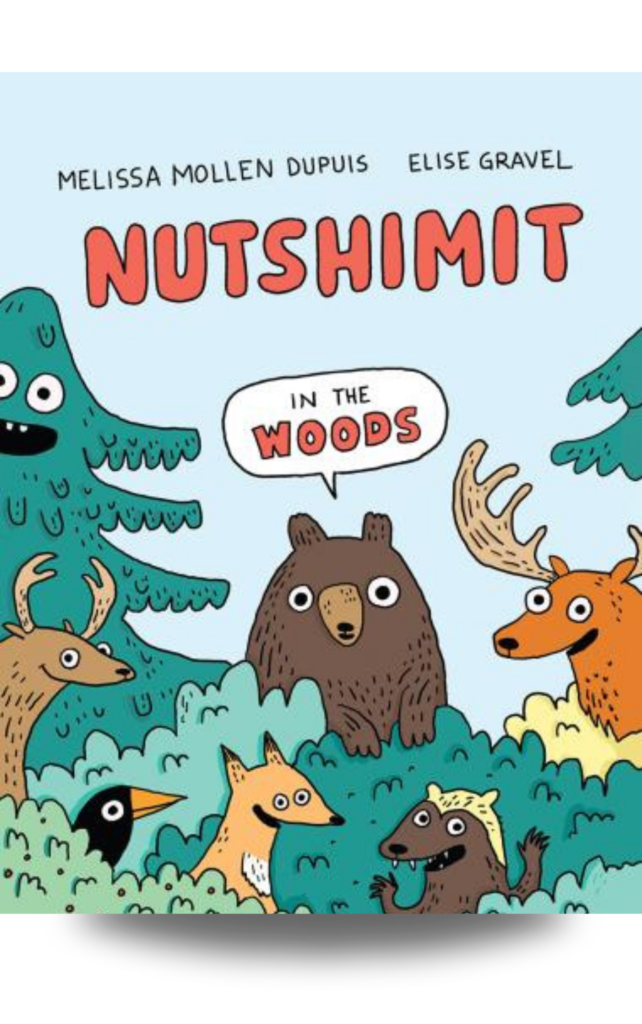By Read Quebec Staff
September 30th is the National Day for Truth and Reconciliation, a day to honour those lost and abused across Canada’s brutal history of colonialism. There are 94 Calls to Action within Canada’s Truth and Reconciliation Commission, which we encourage you to read. If you are seeking to engage further on the subject, find below a list of recent titles by Indigenous authors written and/or published in the land we commonly call Quebec.
Non-fiction
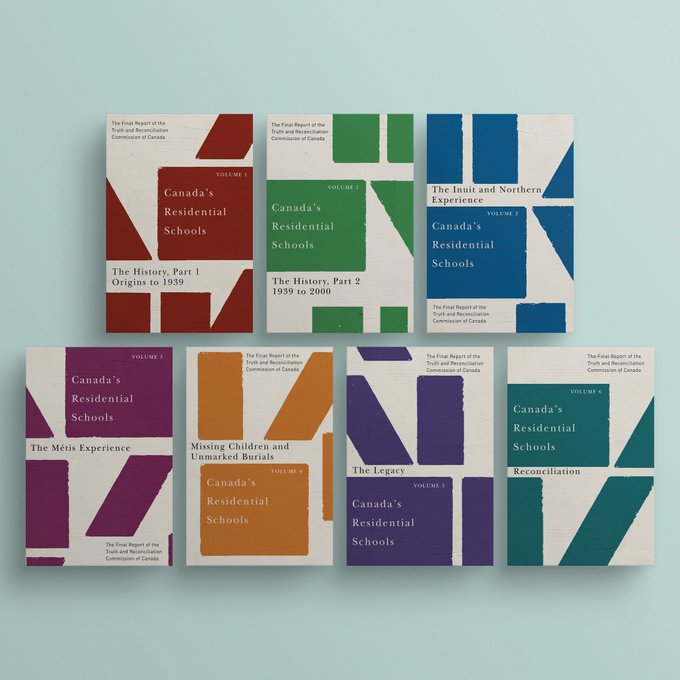
Final Report of the Truth and Reconciliation Commission of Canada by the Truth and Reconciliation Commission
McGill-Queen’s University Press, 2015
Free digital copies can be downloaded here.
From the publisher’s website:
“Between 1867 and 2000, the Canadian government sent over 150,000 Aboriginal children to residential schools across the country. Government officials and missionaries agreed that in order to “civilize and Christianize” Aboriginal children, it was necessary to separate them from their parents and their home communities.
For children, life in these schools was lonely and alien. Discipline was harsh, and daily life was highly regimented. Aboriginal languages and cultures were denigrated and suppressed. Education and technical training too often gave way to the drudgery of doing the chores necessary to make the schools self-sustaining. Child neglect was institutionalized, and the lack of supervision created situations where students were prey to sexual and physical abusers.
Legal action by the schools’ former students led to the creation of the Truth and Reconciliation Commission of Canada in 2008. The product of over six years of research, the Commission’s final report outlines the history and legacy of the schools, and charts a pathway towards reconciliation.”
When the Pine Needles Fall by Katsi’tsakwas Ellen Gabriel, with Sean Carleton
Between the Lines Publishing, 2024
From the publisher’s website:
“There have been many things written about Canada’s violent siege of Kanehsatà:ke and Kahnawà:ke in the summer of 1990, but When the Pine Needles Fall: Indigenous Acts of Resistance is the first book from the perspective of Katsi’tsakwas Ellen Gabriel, who was the Kanien’kehá:ka (Mohawk) spokesperson during the siege. When the Pine Needles Fall, written in a conversational style by Gabriel with historian Sean Carleton, offers an intimate look at Gabriel’s life leading up to the 1990 siege, her experiences as spokesperson for her community, and her work since then as an Indigenous land defender, human rights activist, and feminist leader.”
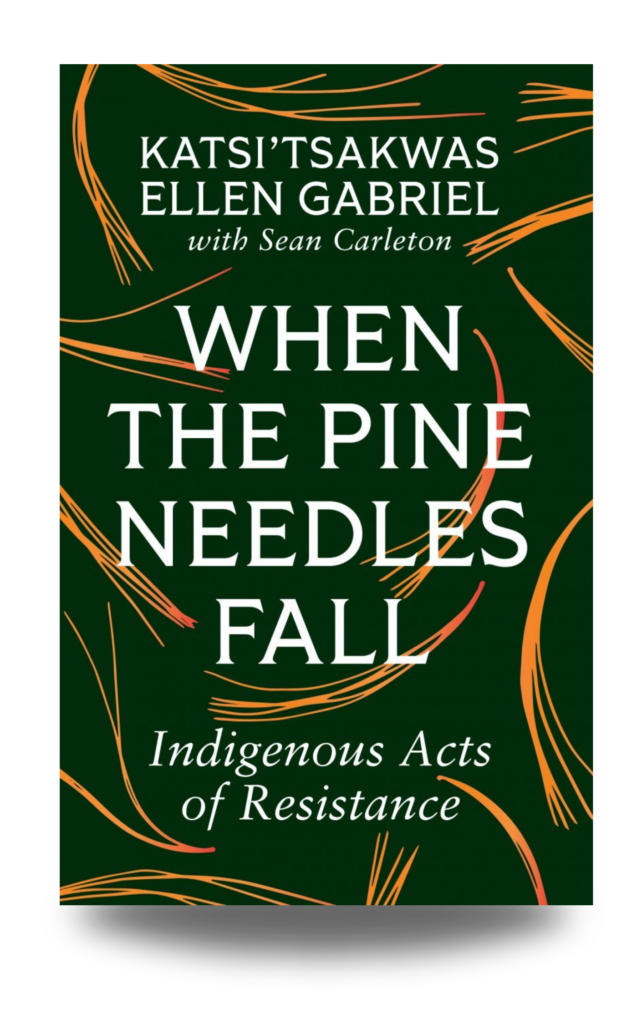
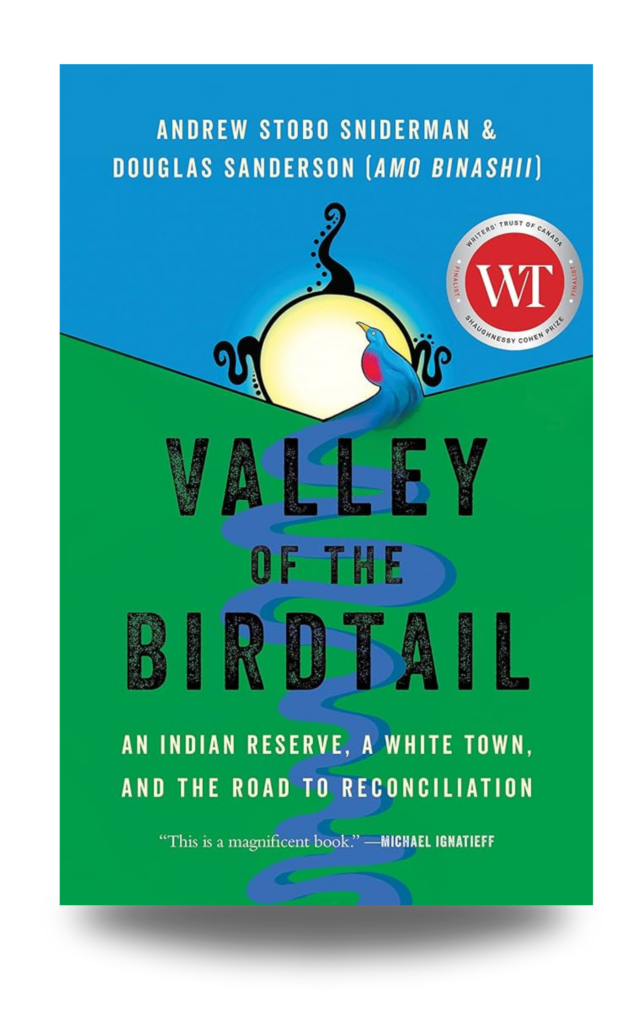
Valley of the Birdtail by Andrew Stobo Sniderman and Douglas Sanderson
HarperCollins Canada, 2022
From the publisher’s website:
“Divided by a beautiful valley and 150 years of racism, the town of Rossburn and the Waywayseecappo Indian reserve have been neighbours nearly as long as Canada has been a country. Their story reflects much of what has gone wrong in relations between Indigenous Peoples and non-Indigenous Canadians. It also offers, in the end, an uncommon measure of hope.
Valley of the Birdtail is about how two communities became separate and unequal—and what it means for the rest of us. In Rossburn, once settled by Ukrainian immigrants who fled poverty and persecution, family income is near the national average and more than a third of adults have graduated from university. In Waywayseecappo, the average family lives below the national poverty line and less than a third of adults have graduated from high school, with many haunted by their time in residential schools.
This book follows multiple generations of two families, one white and one Indigenous, and weaves their lives into the larger story of Canada. It is a story of villains and heroes, irony and idealism, racism and reconciliation. Valley of the Birdtail has the ambition to change the way we think about our past and show a path to a better future.”
Fiction
Wapke: Indigenous Science Fiction Stories, edited by Michel Jean, translated by Kathryn Gabinet-Kroo
Exile Editions, 2022
From the publisher’s website:
“Wapke – meaning ‘tomorrow’ in the Atikamekw language – is Quebec’s first collection of science fiction short stories by Indigenous writers. Fourteen authors from various nations and different backgrounds project us into the future through their moving, poetic, worrying and sometimes fantastical tales, addressing current social, political and environmental themes. From time travelling Indigenous warriors to rebellious language and knowledge keepers, from Big Trees in a lake to a human sausage factory, from living on the land to living in cyberspace, these stories provide a trans-Indigenous colonial critique.
The brainchild of Michel Jean, Wapke can be read on different levels: as pure entertainment for sci-fi fans or as a stimulant to serious reflection. It offers an often-captivating social commentary that reveals how Indigenous people view the future as well as a hope that change will come.”
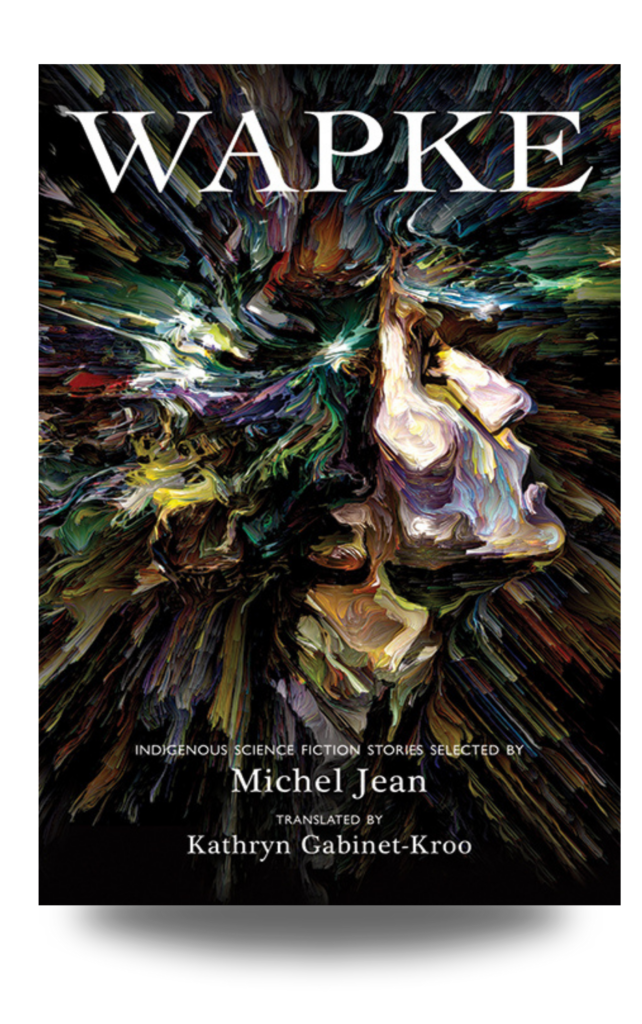
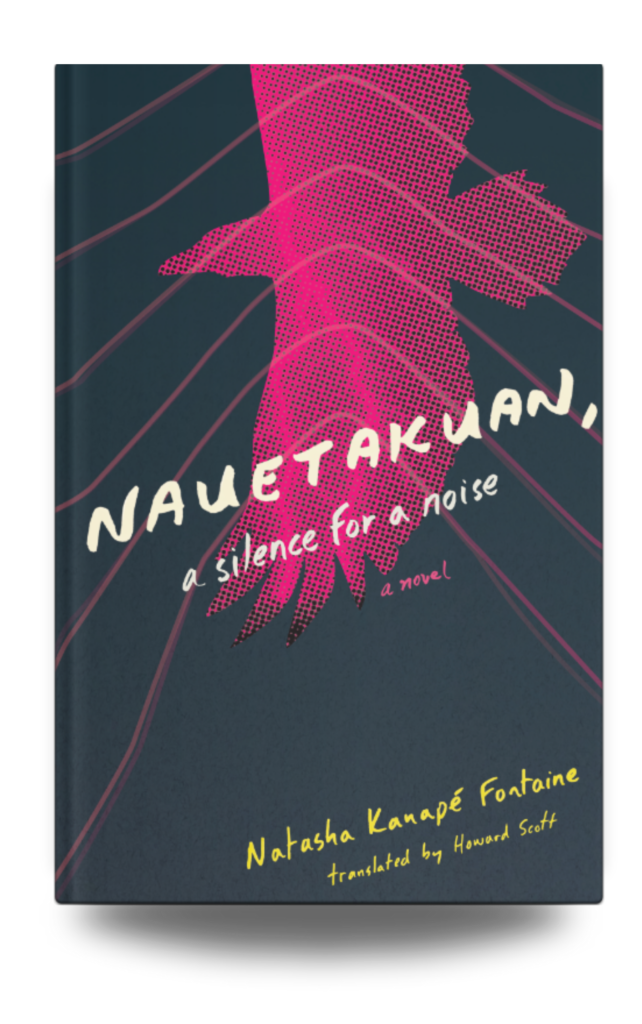
Nauetakuan, a silence for a noise by Natasha Kanapé Fontaine, translated by Howard Scott
Book*hug Press, 2024
From the publisher’s website:
“Monica, a young woman studying art history in Montreal, has lost touch with her Innu roots. When an exhibition unexpectedly articulates a deep, intergenerational wound, she begins to search for stronger connections to her Indigeneity. A new friendship with Katherine, an Indigenous woman whose life is filled with culture and community, emphasizes for Monica the possibilities of turning from assimilation and toxic masculinity to something deeper and more universal.
Travelling across the continent, from Eastern Canada to Vancouver to Mexico City, Monica connects with other Indigenous artists and thinkers, learning about their traditional ways and the struggles of other Nations. Throughout these journeys, she is guided by visions of giant birds and ancestors that draw her back home to Pessamit. Reckonings with family and floods await, but amidst strange tides, she reconnects to her language, Innu-aimun, and her people.
A timely, riveting story of reclamation, matriarchies, and the healing power of traditional teachings, Nauetakuan, a silence for a noise affirms how reconnecting to lineage and community can transform Indigenous futures.”
Poetry
Spawn by Marie-Andrée Gill, translated by Kristen Renee Miller
Book*hug Press, 2020
From the publisher’s website:
“Spawn is a braided collection of brief, untitled poems, a coming-of-age lyric set in the Mashteuiatsh Reserve on the shores of Lake Piekuakami (Saint-Jean) in Quebec. Undeniably political, Gill’s poems ask how one can reclaim a narrative that has been confiscated and distorted by colonizers.
The poet’s young avatar reaches new levels on Nintendo, stays up too late online, wakes to her period on class photo day, and carves her lovers’ names into every surface imaginable. Encompassing twenty-first-century imperialism, coercive assimilation, and nineties-kid culture, Spawn is threaded with the speaker’s desires, her searching: for fresh water to “takes the edge off,” for a “habitable word,” for sex. For her true north—her voice and her identity.
Like the life cycle of the ouananiche that frames this collection, the speaker’s journey is cyclical; immersed in teenage moments of confusion and life on the reserve, she retraces her scars to let in what light she can, and perhaps in the end discover what to make of herself.”
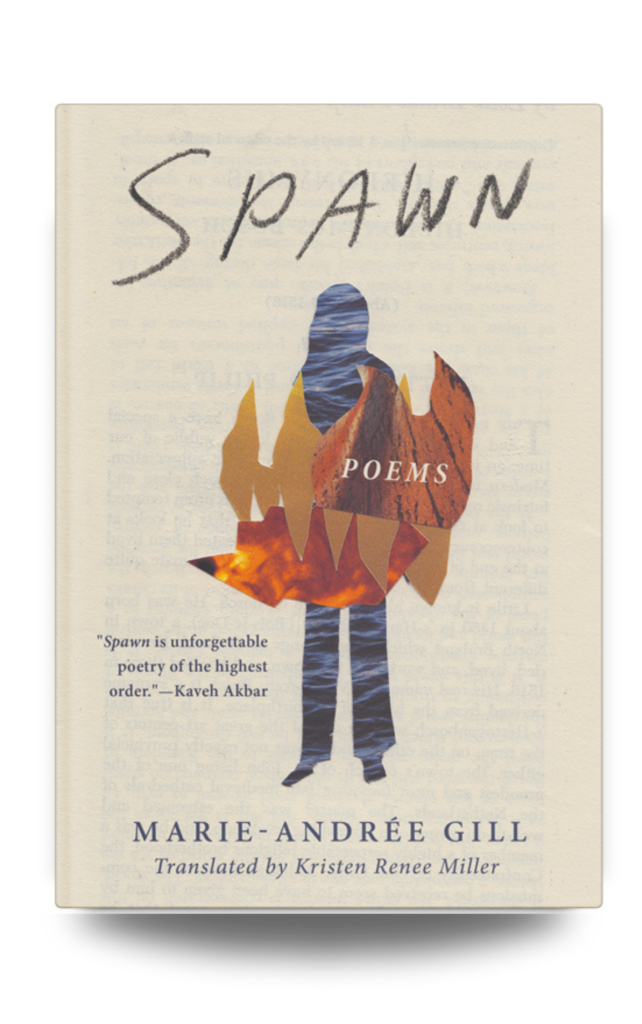
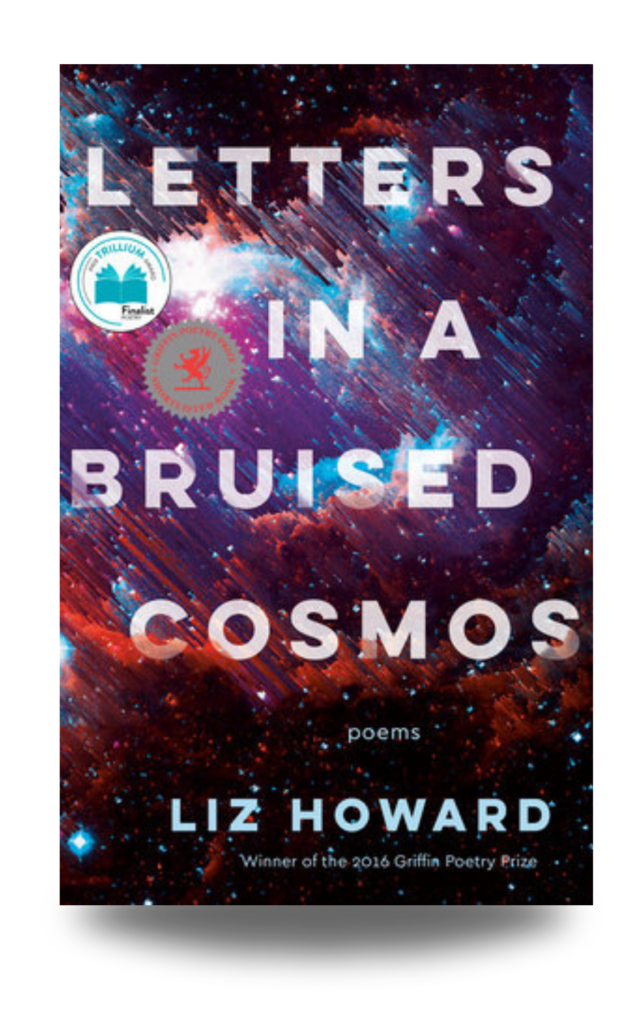
Letters in a Bruised Cosmos by Liz Howard
Penguin Random House Canada, 2021
From the publisher’s website:
“The danger and necessity of living with each other is at the core of Liz Howard’s daring and intimate second collection. Letters in a Bruised Cosmos asks who do we become after the worst has happened? Invoking the knowledge histories of Western and Indigenous astrophysical science, Howard takes us on a breakneck river course of radiant and perilous survival in which we are invited to “reforge [ourselves] inside tomorrow’s humidex”. Everyday observation, family history, and personal tragedy are sublimated here in a propulsive verse that is relentlessly its own. Part autobiography, part philosophical puzzlement, part love song, Letters in a Bruised Cosmos is a book that once read will not soon be forgotten.”
Liturgy of Savage No. 82 by Maya Cousineau Mollen, translated by Adam Haiun
Caitlin Press, 2024
From the publisher’s website:
“Originally from the community of Ekuanitshit (Mingan) in the Lower North Shore region of Quebec, Cousineau-Mollen was adopted at a very young age by an urban family as part of what is now known as the Sixties Scoop. Although Cousineau-Mollen did not grow up in an Indigenous community, her adoptive family maintained contact with her biological family, ensuring she remained connected to her culture and identity. Having faced adversity and rejection during her studies at Laval University due to her Indian Status, she has since worked to build and support community initiatives, through Aboriginal student associations and involvement in the Wolf Pack Street Patrol, for the Indigenous homeless people of Montreal. In The Liturgy of Savage No. 82, Cousineau-Mollen reclaims, honours, and makes space for herself and the rights of Indigenous women. A powerful and emotional poetry collection, The Liturgy of Savage No. 82 explores the realities facing Indigenous women in Canada and the emotional impact of homelessness, intergenerational trauma and systemic racism, all through a feminist lens as she considers the implications of femininity and identity in relation to the unceded land of her people.”
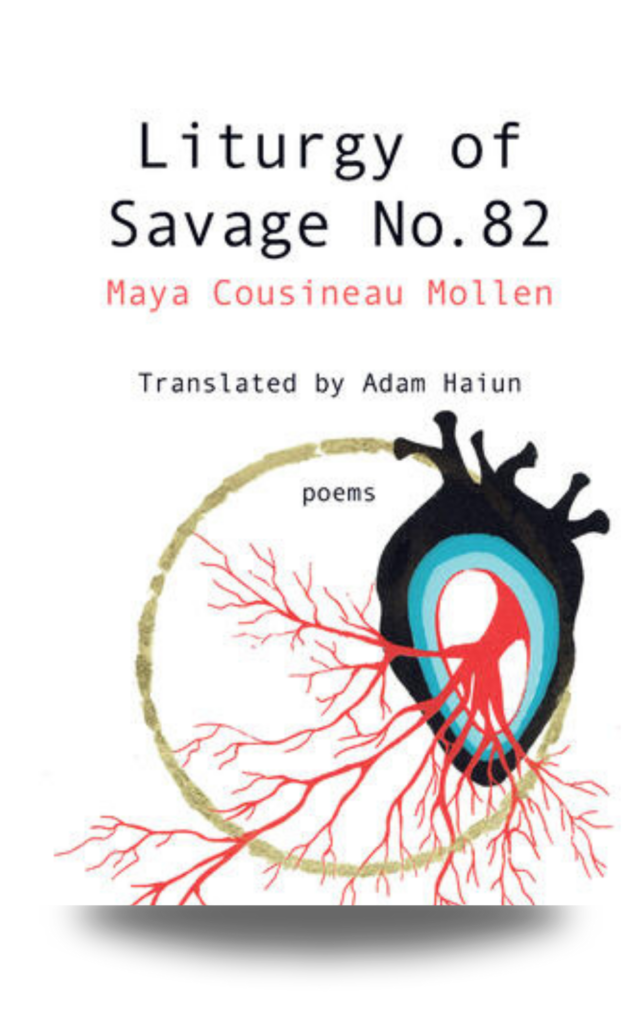
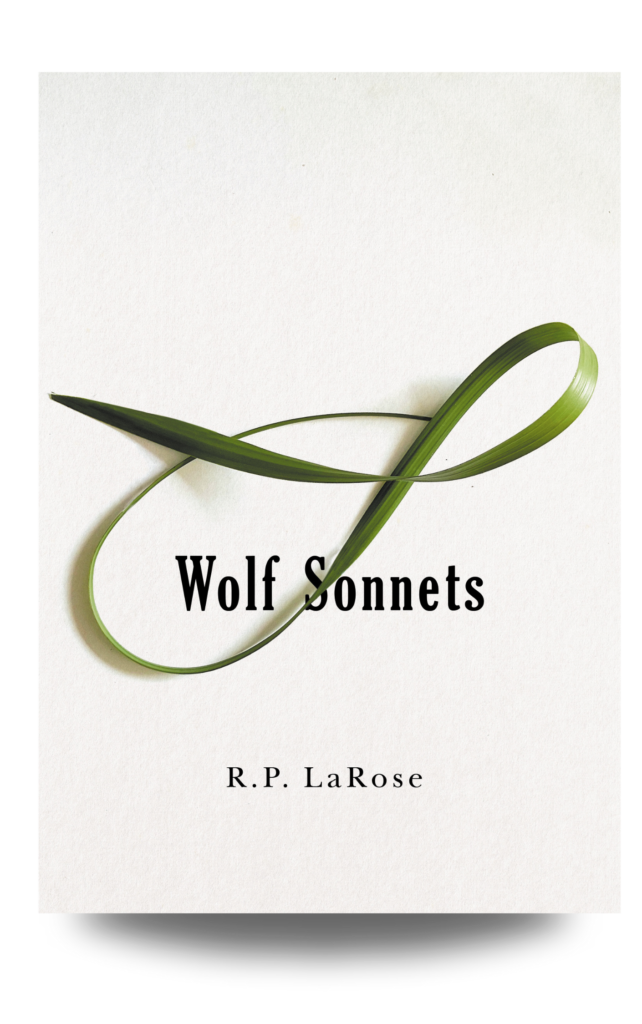
Wolf Sonnets by R.P. LaRose
Véhicule Press, 2022
From the publisher’s website:
“In his commanding poetry debut, Wolf Sonnets, R. P. LaRose undoes the sonnet’s classical constraints, retooling the form for current political circumstances. Packed with family lore, these poems reflect on how deeply we can trust the terms we use to construct our identity. A proud citizen of the Métis Nation, LaRose even questions his right to identify as such: “I was made in someone else’s home,” he writes. Wolf Sonnets is verse obsessed with names, infinity, numbers, categories, and interconnectedness. Depicting his ancestors as wolves—symbols of survival and protection—LaRose bring fresh insight to his wider poetic project: castigating the inequality, greed, and racism inherent to colonialism.
For Young Readers
NISH: Northern Lights by Isabelle Picard, translated Kateri Aubin Dubois
Scholastic Canada, 2024
From the publisher’s website:
“The second book in Isabelle Picard’s bestselling coming-of-age series about Innu twins, Leon and Eloise.
Leon and Eloise are 13-year-old twins from Matimekush, an Innu community in Northern Quebec.
The entire Mckenzie family has moved to Wendake, near Quebec City. Leaving Matimekush, nature, their friends and their school is quite a challenge for Eloise and Leon. Between the adapting to a different world, their desire to make new friends and the need to keep their bond with the old ones, everything goes too fast.
At school, a student bullies Eloise, and she has to deal with this difficult situation. As for Leon, he starts doubting his hockey skills: Is he really talented or was he the best in Matimekush only because the competition simply wasn’t as strong? In the midst of this storm, Leon and Eloise can always count on each other as well as their family and friends.
The Mystery unfolds on every page as we get to see the twins in a different light. What if, ultimately, life in the South isn’t that different from life in the North?”
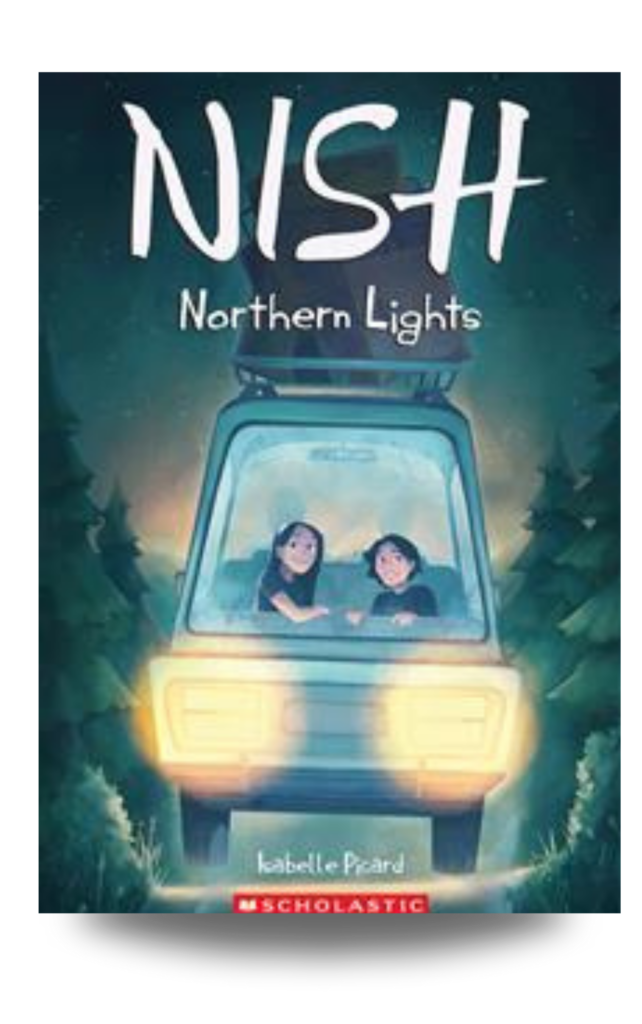
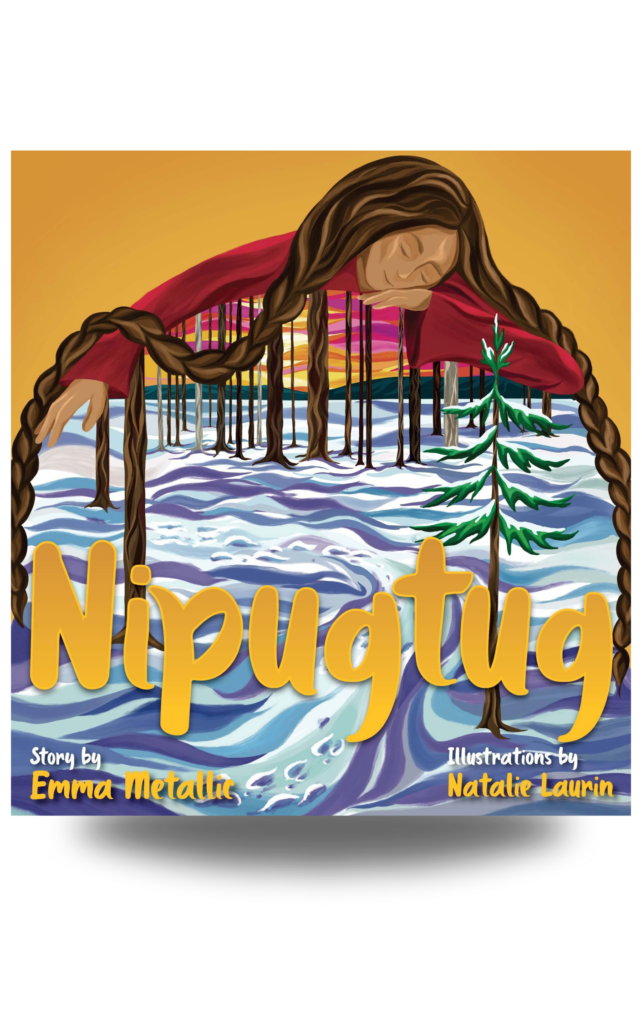
Nipugtug by Emma Metallic, illustrated by Natalie Laurin
Kegedonce Press, 2023
From the publisher’s website:
“Nipugtug (In the Forest–pronounced “nee-book-dook”) follows A’le’s, a young Mi’gmaw woman, as she snowshoes through the forest at different times in her life. On her journeys, she meets and converses with the animals and the trees, who guide her through the challenging and nourishing emotions of learning her Mi’gmaw language. Grounded in her relationship with the territory, A’le’s navigates memories of her language and culture that cling to realities within and beyond her life. A delightful and moving story illustrated with Natalie Laurin’s beautiful paintings, Nipugtug is written in both Mi’gmaw and English for language-learners of any age.”
Nutshimit: In the Woods by Melissa Mollen Dupuis, illustrated by Elise Gravel
Scholastic Canada, 2024
From the publisher’s website:
“In this immersive first-person account, Innu author Melissa Mollen Dupuis teams up with award-winning author and illustrator Elise Gravel to take readers on a journey through Innu culture, from creation legends to life today.
The Innu word Nutshimit signifies the physical and social space to practice traditional activities and language. Join author Melissa Mollen Dupuis on a guided walk deep through the forest to learn some of the rich culture of the Innu people.
Readers will discover the importance of natural world and learn a few Innu words along the way. Thoughtfully brought to life by Elise Gravel’s signature comic style illustrations, Melissa’s colloquial narrative and anecdotes detailing her lived experiences offer a deeply personal look at Innu life.”
